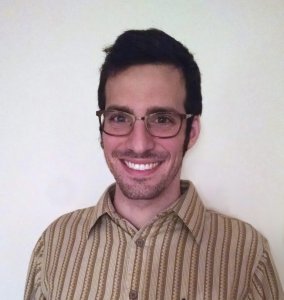Presented By: Michigan Institute for Computational Discovery and Engineering
Jesse Capecelatro: Towards Accurate and Tractable Methods of Disperse Multiphase Flows in Extreme Environments
MICDE Seminar Series

Professor Capecelatro is interested in developing large-scale simulation capabilities for prediction and design of the complex multi-physics and multiphase flows relevant to energy and the environment. To achieve this, his group develops robust and scalable numerical methods to leverage world-class supercomputing resources. His current research projects are focused on adjoint-based methods applied to turbulent combustion, modeling strongly-coupled particle-laden flows, and understanding interactions between electrostatics and turbulence in atmospheric clouds.
Prior to joining the mechanical engineering department at the University of Michigan in 2016, Dr. Capecelatro was a research scientist at the Center for Exascale Simulation of Plasma-coupled Combustion (XPACC) at the University of Illinois Urbana-Champaign. He received a B.S. in mechanical engineering from SUNY Binghamton in 2009, and two years later completed a M.S. in mechanical engineering from the University of Colorado Boulder, where he performed research in collaboration with the National Renewable Energy Laboratory on numerical modeling of fluidized bed reactors. In 2014 he received a Ph.D. from Cornell University under the guidance of Prof Olivier Desjardins, where his thesis focused on high performance computing of turbulent multiphase flows. He spent the summer following his Ph.D. as a visiting postdoc at the Institut de Mécanique des Fluides de Toulouse and École Centrale Paris focusing on fundamental and numerical studies of particle-induced turbulence.
The complex and multiscale behavior associated with turbulent flows is further complicated by the presence of a disperse phase (i.e., solid particles, liquid drops, or gaseous bubbles). Strong coupling between the disperse phase and underlying turbulence plays important roles across engineering and science.
Prior to joining the mechanical engineering department at the University of Michigan in 2016, Dr. Capecelatro was a research scientist at the Center for Exascale Simulation of Plasma-coupled Combustion (XPACC) at the University of Illinois Urbana-Champaign. He received a B.S. in mechanical engineering from SUNY Binghamton in 2009, and two years later completed a M.S. in mechanical engineering from the University of Colorado Boulder, where he performed research in collaboration with the National Renewable Energy Laboratory on numerical modeling of fluidized bed reactors. In 2014 he received a Ph.D. from Cornell University under the guidance of Prof Olivier Desjardins, where his thesis focused on high performance computing of turbulent multiphase flows. He spent the summer following his Ph.D. as a visiting postdoc at the Institut de Mécanique des Fluides de Toulouse and École Centrale Paris focusing on fundamental and numerical studies of particle-induced turbulence.
The complex and multiscale behavior associated with turbulent flows is further complicated by the presence of a disperse phase (i.e., solid particles, liquid drops, or gaseous bubbles). Strong coupling between the disperse phase and underlying turbulence plays important roles across engineering and science.